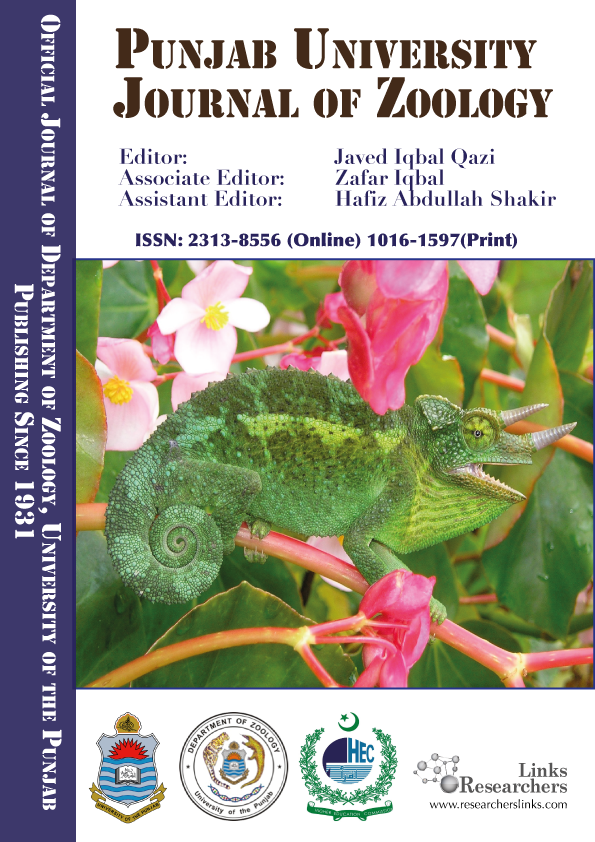Embryotoxic effects of sodium arsenate in Mus musculus
Embryotoxic effects of sodium arsenate in Mus musculus
Embryotoxic effects of sodium arsenate in Mus musculus
Madeeha Arshad, Asmatullah, Chaman Ara
ABSTRACT
Arsenic level is rising day by day in various parts of the world including Pakistan as
a result of zinc and copper smelting and pesticide usage. Inorganic arsenic
(sodium arsenate) other than general lethality additionally can be a teratogenic
agent. Present research work is focused on the teratogenic impacts of sodium
arsenate given to gravid mice (Mus musculus). Different doses of sodium arsenate
18.25, 37.5 and 75mg/kg B.W. were administered orally at day 6 of gestation
(single exposure group) to 15 females/dose group along with one control group
having 15 females, which was given only distilled water. Pups were recovered on
18th day of gestation and fixed for morphometric morphological and histological
analysis. Morphometric observations indicated significant (P≤0.05) variations
among groups in certain parameters (body weights, crown rump length, head and
eye circumferences) against control. Microcephaly, hygroma, skin hemorrhages,
scoliosis and appendage deformities among arsenic treated groups were observed.
Histological studies revealed abnormalities like spina bifida, cardiac malformations,
miss-happened cochlea and oropharynx. It is concluded that sodium arsenate
causes teratogenicity in developing mice.
To share on other social networks, click on any share button. What are these?







